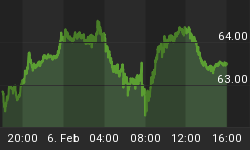
Charts created using Omega TradeStation 2000i. Chart data supplied by Dial Data
The European Union (EU) may be an economic and political union of 28 member states but there has never been little doubt that its centre is in Germany. As a whole, the EU is the largest economy in the world with a GDP of $17.4 trillion (2013). Germany is the largest economy in the EU at $3.6 trillion. That would rank them 4th in the world behind the US, China and Japan.
The EU is not be confused with the Eurozone. Of the 28 member states of the EU only 18 of them have adopted the Euro (€) as their common currency. Those 18 countries constitute the Eurozone. Three small countries (Andorra, Monaco and Vatican City) have agreements with the EU to use the Euro as their currency and issue their own coins but are not officially a part of the Eurozone. Two other countries, Kosovo and Montenegro, are not members of the EU but have adopted the Euro unilaterally.
Germany, along with France, Belgium, Italy, Luxemburg and Netherlands was an original founder of the EU. Germany along with the other five founders of the EU plus Austria, Finland, Ireland, Portugal and Spain were the original member states of the Eurozone.
In our North American centric world, the tendency is to overlook the European exchanges and indices. The Frankfurt Stock Exchange or Deutsche Boerse is the 10th largest in the world by market capitalization. In the EU, the London Stock Exchange is the largest. Frankfurt is a major financial centre but is only the 11th largest in the world. New York and London are the two largest financial centres in the world. Even some regional financial centres such as Boston and San Francisco rank ahead of Frankfurt in terms of size as global financial centres. The DAX or its proper name Deutsche Boerse AG German Stock Index is Germany's Dow Jones Industrial (DJI). Like the DJI, the DAX consists of 30 blue chip stocks.
It might be wise to keep an eye on the DAX going forward. Germany is intertwined with Russia in a significant way. Everyone centers on German energy needs supplied by Russia. But Russia depends on Germany for German investment. Continued talk of sanctions against Russia as a result of the Ukraine crisis could put Germany in a bind. Germany gets roughly 30% of its energy needs from Russia. Russian oil and gas accounts for a large portion of the estimated €40 billion in German imports from Russia. Germany exports an estimated €38 billion to Russia primarily mechanical engineering products, medicines, trains and automobiles. More than 6,000 German companies are registered in Russia and they have invested some €20 billion in the past few years. It is estimated that some 300,000 German jobs are dependent on continued business with Russia. In total Russia and the EU conduct roughly €360 billion of trade and investments.
Numerous German companies have voiced serious concern about sanctions on Russia. But then so have American, British and Canadian companies. Russia is the 8th largest economy in the world with a GDP of $2.1 trillion. That is smaller than Germany but it is still quite significant. Russia has been a favourite for western bank lending. Russia's external debt is estimated at $732 billion at the end of 2013 according to the Central Bank of Russia (BOR). Nearly $200 billion of that was acquired over the past two years. While the sums owing to western banks are considerable Russia's debt to GDP is small at 34% when compared to EU countries including Britain, France and Germany, the USA and Japan and even Canada.
S&P recently downgraded Russia to BBB-. That is barely above junk. That has to be a worry for the western banks holding Russian debt. French banks lead the way in holding Russian debt followed by the US, Italy and Germany. Russia, in order to get around sanctions and continue to be able to access financing is turning to Asia. But the massive loans to Russia provided by western banks is yet another systemic risk that the EU and even the US has to consider. The next war won't be fought with armies. It will be fought on the financial front. Currency wars, debt defaults and cyber-attacks are more likely to be the wave of the future rather than two armies facing each other.
The DAX may be worth keeping an eye on. The current pattern forming on the weekly chart is eerily similar to one that formed in 2007 and again in 2011. The DAX has been following a trendline up that is parallel to the trendline that formed from 2009-2011. The DAX recently broke below its 13 week MA but managed to rebound back off the 40 week MA. The DAX RSI indicator has turned down from overbought levels just as it did in 2006, 2007 and 2011 (down arrows on the RSI).
The DAX hasn't fallen yet. But then the DJI hasn't fallen either. Both have been flashing warning signs as have numerous other stock market indices. Sanctions on Russia are a "quid pro quo". Sanctions on Russia are not like putting sanctions on Iraq, Iran, Syria or North Korea. The Russian bear can bite back. And Germany, the EU's largest economy is quite vulnerable. No wonder sanctions have so far been less than many have called for.















